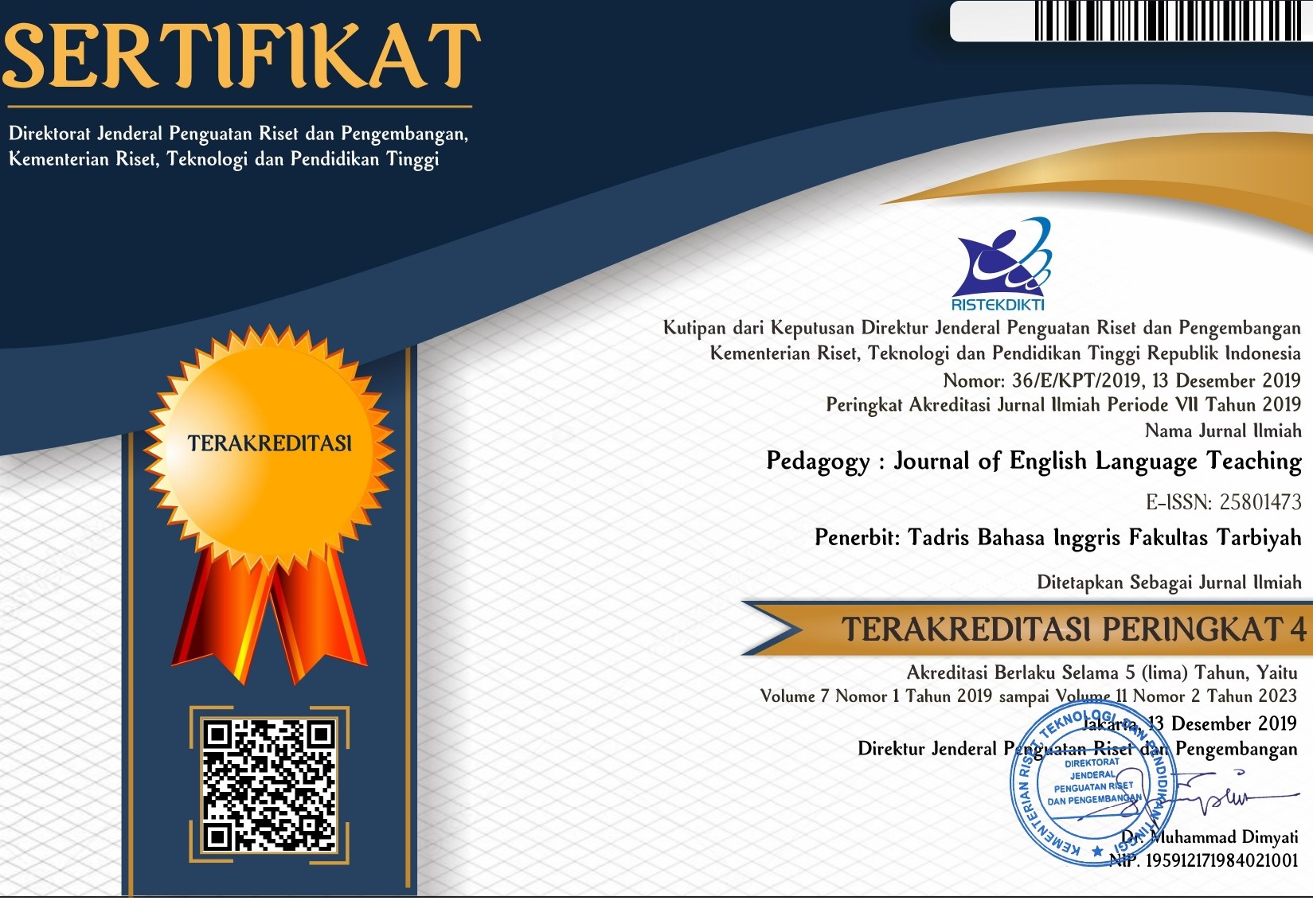Analyzing English Pronunciation Skills of Indonesian Bilingual School Teachers Using Phonetic Transcription
DOI:
https://doi.org/10.32332/pedagogy.v7i2.1499Keywords:
bilingual school, consonant sound, combined curriculum, phonetic transcription, pronunciationAbstract
This paper analyzed English pronunciation skill of teachers in one of Indonesian bilingual schools which apply a combined curriculum to provide high quality of education. The teachers are demanded to have good English proficiency. Pronunciation is considered to be crucial in English speaking skill since the teachers have the responsibility to teach Cambridge International Primary Program (CIPP) subjects, such as Math, English and Science. It is to give good examples in pronouncing words and not to mislead the students during the content delivery in teaching. Fifteen homeroom teachers involved as participants in the research. It considers their having essential role in developing the students’ English abilities and become a model to speak English despites their various English abilities since they graduated from non-English departments. The researchers used the recordings of the testing instrument involving 15 teachers and a questionnaire to collect data. Findings showed the words best, both, first, high, question, sure, table, television, with and wrong were frequently mispronounced by the teachers.















